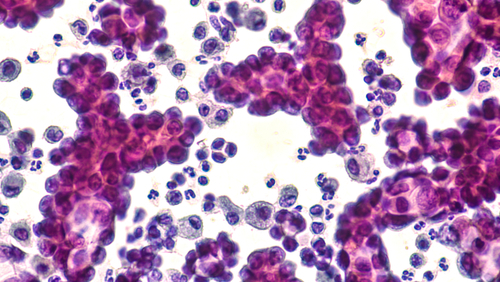New biomarker found for early diagnosis of lung cancer
ANI May 08, 2018
Patients with lung cancer have high levels of cytoskeleton-associated protein 4 (CKAP4) in their blood compared to healthy individuals, suggests a recent research.

In the study, investigators found that CKAP4 levels are already elevated in the blood of patients with stage I disease, making it a potential noninvasive diagnostic marker that could change current practices in the diagnosis and treatment of some types of lung cancer, including non-small-cell lung cancer and squamous cell carcinoma, and improve patient outcomes. Lung cancer is associated with a poor prognosis because most of the times it is diagnosed at an advanced stage.
“The identification of patients at an early stage of cancer when it can be treated surgically is extremely important to improve prognosis. We need better biomarkers for early diagnosis," explained Yuichi Sato, a professor. Current biomarkers for lung cancer include carcinoma embryonic antigen (CEA), sialyl Lewis X antigen (SLX), squamous cell carcinoma (SCC) antigen, and cytokeratin fragment (CYFRA) 21-1, but these are not sensitive enough to detect tumors early, according to another professor Ryo Nagashio.
“The results of our study provide evidence that the CKAP4 protein may be a novel early sero-diagnostic marker for lung cancer,” Nagashio said. Researchers performed reverse-phase protein array analysis using a monoclonal antibody designated as KU-Lu-1 antibody on the blood of 271 lung cancer patients and 100 healthy individuals. The study appears in The American Journal of Pathology.
-
Exclusive Write-ups & Webinars by KOLs
-
Daily Quiz by specialty
-
Paid Market Research Surveys
-
Case discussions, News & Journals' summaries